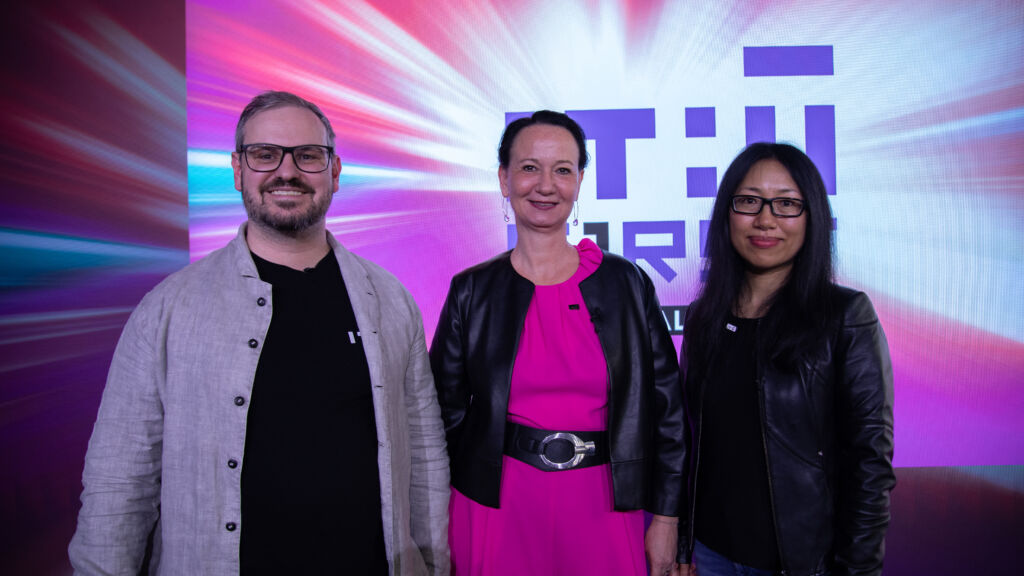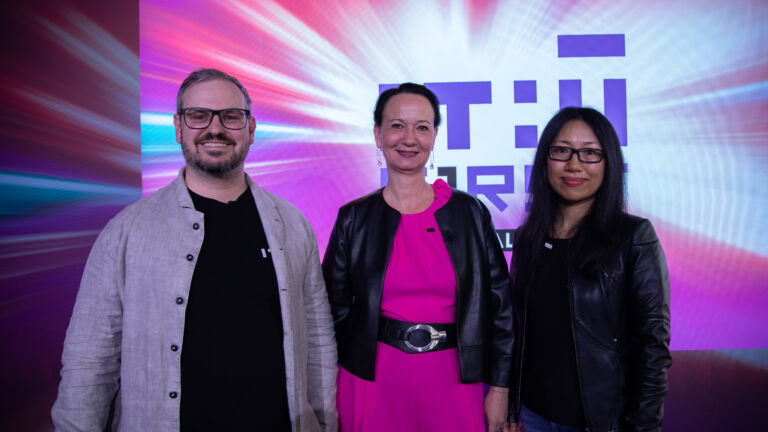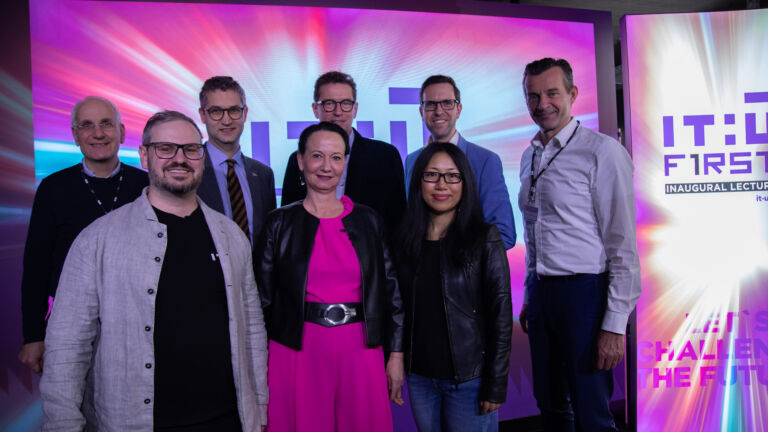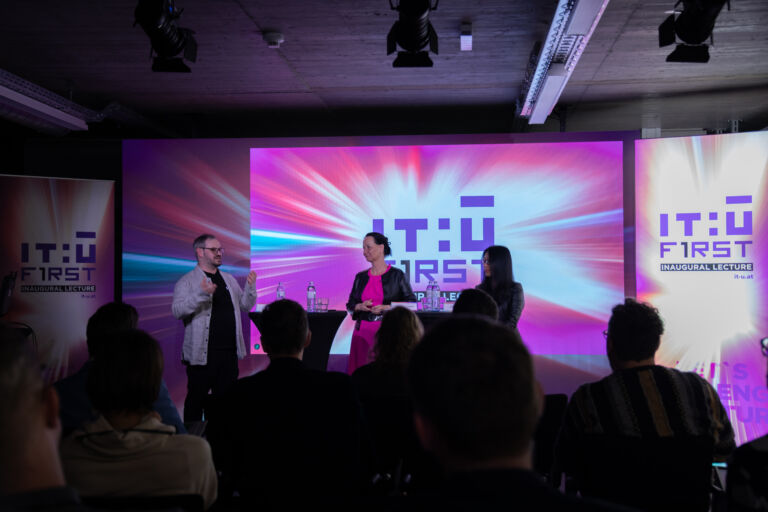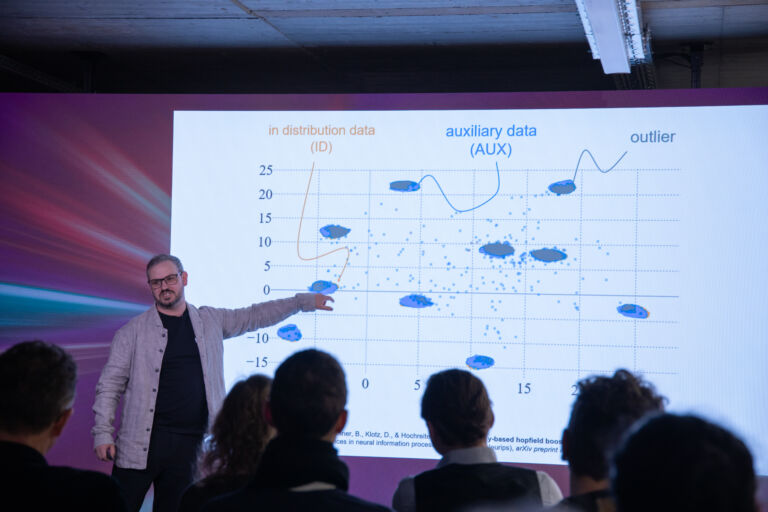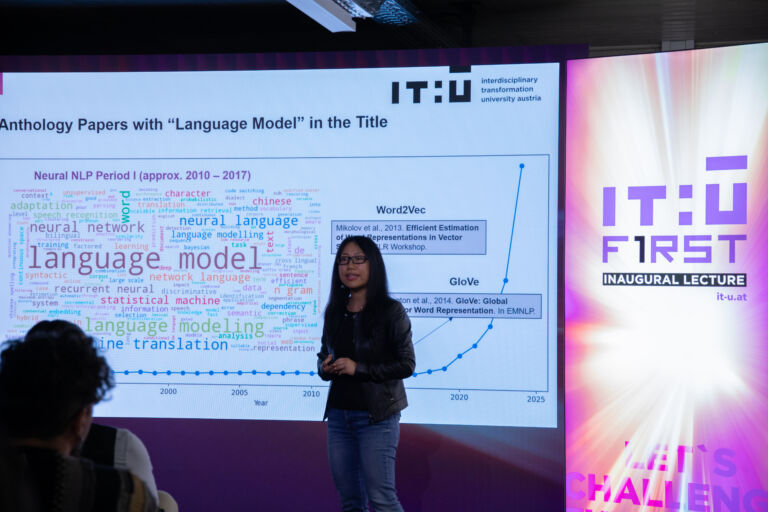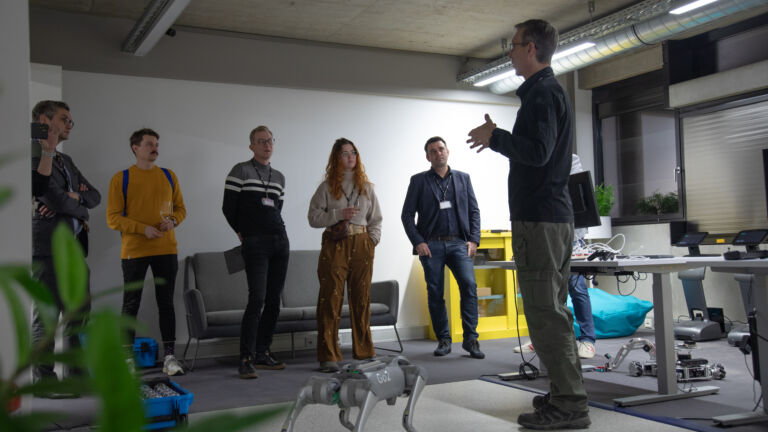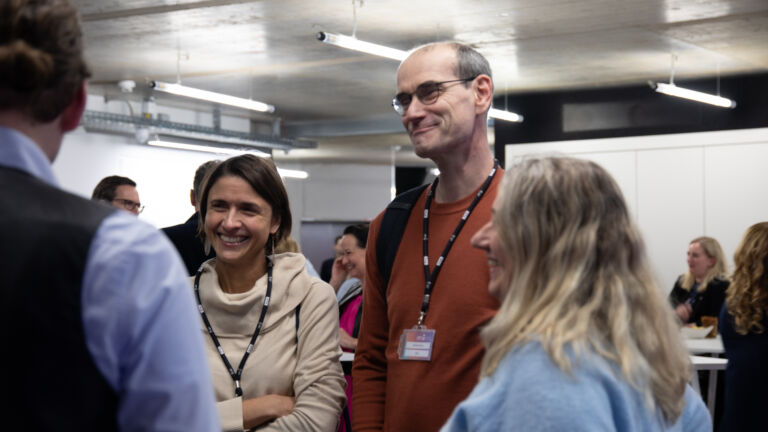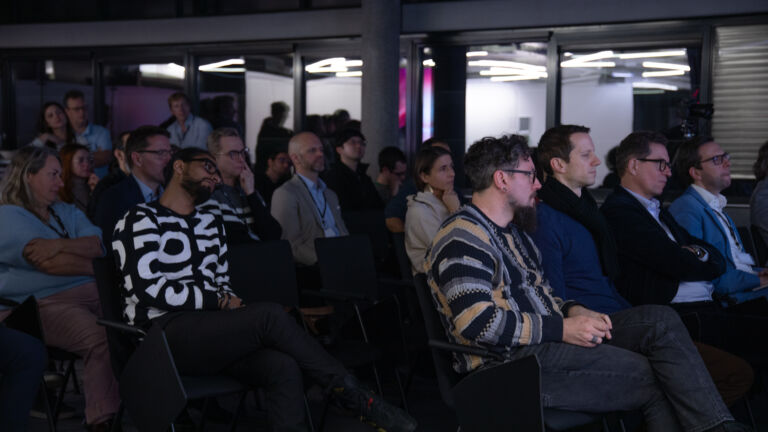IT:U held 2nd Inaugural Lecture
On February 4, 2025, IT:U Austria continued its mission of advancing interdisciplinary AI research with its second Inaugural Lecture. The event featured a compelling lecture by founding professors, Prof. Yufang Hou and Prof. Daniel Klotz, highlighting Artificial Intelligence (AI)’s transformative role in natural language processing (NLP) for knowledge synthesis and its applications in Earth Science. The event welcomed attendees from academia, industry & economy, and policy sectors, fostering discussions on AI’s real-world impact.
AI is Advancing Science and Tackling Global Challenges
AI is already transforming knowledge processing and tackling global challenges. Tools like ChatGPT are reshaping information access, while AI models advance scientific research. At the same time, recent disasters like Storm Boris and California wildfires underscore the need for improved climate assessment and real-time monitoring. Hence, IT:U is committed to advancing AI research to enhance not only scientific discovery but also develop real-world solutions to global challenges such as environmental risk management.
“Artificial intelligence is revolutionizing how we process knowledge and tackle global challenges. At IT:U, we are therefore deeply engaged in exploring the role AI can play in science, not only to advance scientific discoveries but also to produce concrete solutions. Yufang Hou and Daniel Klotz have impressively demonstrated this potential in their inaugural lecture.”
Founding President, Stefanie Lindstaedt.
AI for Knowledge Synthesis and Dissemination
Prof. Yufang Hou’s research develops AI models that facilitate large-scale knowledge synthesis and dissemination, ensuring that researchers and the general public can efficiently process, verify, and extract key insights from vast amounts of scientific literature. These models enhance fact-checking, improve the credibility of AI-generated summaries, and streamline access to critical knowledge across disciplines. This research has broad practical future applications across various fields, including:
- Combating Misinformation in Science – Combining argument mining with fact-checking to develop NLP models to detect and explain misinformation related to scientific literature, ensuring credible knowledge dissemination.
- Climate Science & Policy – AI validates climate reports and environmental studies, supporting policymakers in making data-driven decisions.
- Medical & Healthcare Research – AI-driven literature meta-analysis assists doctors in staying up to date with clinical advancements.
- Enterprise & Industry Knowledge Management – AI automates knowledge retrieval, synthesis, and dissemination, optimizing decision-making in various industries.
“Natural Language Processing (NLP) is a multidisciplinary field, and large language models (LLMs) exemplify how interdisciplinary approaches can yield groundbreaking advancements. Looking ahead, I believe that LLMs and other AI technologies have the potential to transform scientific research.”
Professor Yufang Hou
AI for Environmental Risk Management
Daniel Klotz applies machine learning to enhance climate impact and environmental risk assessment. His research leverages satellite imagery, meteorological data, and hydrological modelling to improve forecasting accuracy and disaster preparedness. Key areas where his research is making an impact:
- Model Risks — Constructing machine learning models so that they can deal with challenges that arise in real world deployment (outlier detection, data-shifts, uncertainty quantification, etc.)
- Data-Driven Rainfall–Runoff Models — These models, currently deployed all over the world over the world, synthesize the data from hundreds to thousands of rivers to provide high-quality streamflow simulations, which ultimately allow for better flood predictions.
- Sustainable Water & Land Management — AI-driven analysis of environmental variable, such as soil moisture and vegetation properties, to understand and help to address climate change impacts (e.g., by employing reforestation and water resource management strategies).
“In machine learning, we study (statistical) machines that learn from a set of data to generalize to new and unseen examples. In hydrology, we study the movement and distribution of water on earth to manage its variability. Both may sound easy but lead to surprisingly deep and intricate problems. In my research, I go back and forth between both fields, applying machine learning to hydrological problems or synthesising hydrological problems to guide machine learning research.”
Professor Daniel Klotz
Our Next Inaugural Lectures
Our Inaugural Lecture Series will continue showcasing diverse interdisciplinary research, highlighting AI’s impact on society, neuroscience, and complex systems in the upcoming sessions.
📅 4 March 2025: “Understanding Systems and Societies through Interdisciplinarity” – Tiago de Paula Peixoto (Professor of Complex Systems and Network Science) and Bernd Resch (Professor of Geosocial Artificial Intelligence).
📅 18 March 2025: “Neuro-(X)AI: Illuminating the Black Box of Minds and Machines” – Jie Mei (Assistant Professor of Computational Neuroscience) and Nina Hubig (Assistant Professor of Explainable Artificial Intelligence).
📅 2 April 2025: “An Interdisciplinary Approach to Social Norms and Practices: Theory, Work, and Rules” – Sebastian Dennerlein (Assistant Professor of Digital Transformation in Learning), Christian Hilbe (Professor of Game Theory and Evolutionary Dynamics), and Ben Wagner (Professor of Human Rights and Technology).
